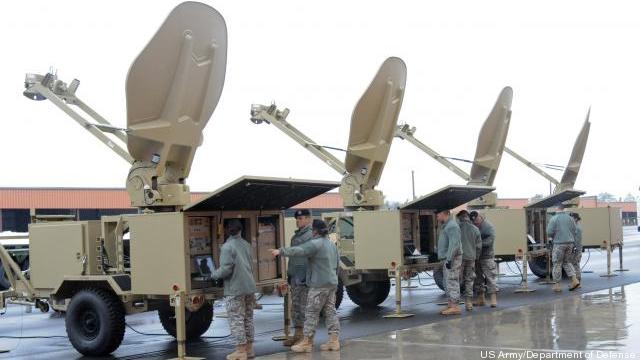Army Kills JTRS, Goes ‘Platform Agnostic’ With Network Plan
Posted on
 Washington: The Army needs a new way to connect soldiers on the battlefield, and it doesn’t care how it gets there.
Washington: The Army needs a new way to connect soldiers on the battlefield, and it doesn’t care how it gets there.
The service is taking a “platform agnostic” approach to the way it is carrying out its new network strategy, a senior Army program official told me yesterday during the U.S. Army Association’s annual symposium here.
In other words, the Army doesn’t care what kind of industry-built black box it uses to communicate with troops in the field, as long as it can carry the two key waveforms that the service will base its entire communications network on, the official said.
Army leaders made that message crystal clear to their industry counterparts this week, deciding to kill the Army version of the Joint Tactical Radio System and re-open the competition for a tactical ground radio, according to recent news reports.
Large cost overruns and numerous schedule delays forced the Army’s hand in canceling the JTRS Ground Mobile Radio system. To that end, DoD has told Lockheed Martin, the prime contractor of the air and sea version of JTRS, to restructure that program with an eye toward affordability.
Army spokesman Paul Meheny declined to comment on the possible cancellation of GMRS, but did reiterate the backbone of the Army’s networking strategy will be the waveforms and not the specific hardware transmitting them.
Those two key networks are the Soldier Radio Waveform (SRW) and Wideband Networking Waveform (WNW). Using those two networks, ground troops will be able to communicate and coordinate operations among each other, as well as relay information back to combat commanders via satellite.
On unit-to-unit communications, the Army says the Warfighter Information Network-Tactical (WIN-T) “is the answer” according to Meheny.
To that end, service officials are planning to test newer versions of WIN-T, among other programs during the Network Integrated Evaluation trials, scheduled for later this month at the White Sands Missile Range in New Mexico.
It was during these NIE trials where the Army discovered the significant problems that ultimately led to the cancellation of the GMRs, Army acquisition chief Heidi Shyu said yesterday.
During the previous NIE, the Army was inundated with “very negative comments” about the GMRs radio, Shyu said. In the end, Army testers found out the radios used during the trials were filled with “broken connections” that affected their performance.
Shyu said the problem fell more on Army personnel not installing the radios correctly on the vehicles used during the NIE trials. However, with the cancellation of the entire system, those problems may have been tied to more than just user error.
For the Army, JTRS is clearly not the answer. And as the service continues to move ahead with its networking strategy, that answer is increasingly up in the air, the Army official admitted.
But what is clear to the Army is that its networks must continue to evolve, regardless of what black box it uses to get there.
Subscribe to our newsletter
Promotions, new products and sales. Directly to your inbox.
